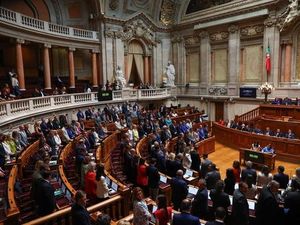Across the globe, LGBTQ rights are facing a wave of coordinated attacks, with the United Kingdom’s recent legal and political turmoil serving as a microcosm of the broader struggle. From sweeping legal changes in Eastern Europe to emboldened far-right rhetoric in the United States, and from harsh criminalization in Africa to mass protests in Latin America, the battle for LGBTQ equality is being fought on multiple fronts. The events of October 2025, particularly the removal of controversial guidance by the UK’s Equality and Human Rights Commission (EHRC), have brought renewed attention to the fragility—and resilience—of LGBTQ protections in supposedly liberal democracies.
On October 15, 2025, the EHRC quietly took down its interim guidance on trans rights from its website, a move that came after months of public outcry and legal threats. According to reporting from the Guardian and statements from advocacy groups, this guidance was hastily published in April, just days after the UK Supreme Court ruled that, for the purposes of the Equality Act 2010, the legal definition of “sex” referred to sex recorded at birth—not gender identity. The interim guidance instructed employers and service providers to prevent trans people from using gendered spaces, such as public toilets, sometimes even excluding them from both men’s and women’s facilities based on the sex they were assigned at birth.
Jane Fae, director of the trans advocacy group TransActual, did not mince words: “The EHRC had ‘gleefully weaponised’ the Supreme Court’s decision.” She continued, “As countless lawyers, including former Supreme Court judges lords Hale and Sumption, have pointed out: it merely defined terms in the Equality Act. What society, in the shape of the EHRC, did with that definition was then… up to society.” Fae and others have pointed out that the EHRC, under its current leadership, has become a lightning rod for controversy, widely believed to have been stacked with anti-trans ideologues by the previous Conservative government and, crucially, left unreformed by the present Labour administration.
The Good Law Project (GLP), a legal advocacy organization, is spearheading a challenge to the interim guidance. Their executive director, Jo Maugham, described the real-world impact: “I’ve spent six months talking to trans people who are afraid to go out because of the climate of fear the EHRC’s interim guidance created. Some are suicidal – and I am aware of people who have sought to take their own lives.” The GLP’s High Court case is set to begin on November 12, 2025. With the interim guidance now withdrawn, Jess O’Thomson, the GLP’s trans rights lead, warned that organizations which implemented exclusionary policies in response to the EHRC’s advice could find themselves in legal jeopardy. “Now the guidance has been withdrawn, so should the exclusionary policies that organisations rashly implemented in its aftermath. If not, they could find themselves in hot water,” O’Thomson stated.
The EHRC’s leadership, particularly chair Baroness Kwisher Falkner—appointed in 2020 by the Conservative Party—has also come under fire. According to staff and international organizations like the Lemkin Institute, Falkner’s tenure has marked a sharp turn toward outright transphobia. In September 2025, the EHRC submitted a 300-page draft of a more permanent code of practice on trans rights to Minister for Women and Equalities, Bridget Phillipson. However, the government has yet to implement it, citing the EHRC’s failure to provide crucial documents, including an equalities impact assessment. A Whitehall source told the Guardian, “Unfortunately this looks like the EHRC deflecting – they still haven’t sent ministers the information they’ve requested in order to assess the draft code. The EHRC should be cracking on with their job, not giving lectures on timing while government still awaits their material.”
For now, the removal of the interim guidance leaves only the more trans-positive guidance from 2011 in place. Falkner, for her part, has urged the government to bring the updated code into force as soon as possible, insisting it “accurately reflects the law and is informed by the two public consultations we ran to ensure it is as clear as possible.” The government, however, remains unmoved until all required assessments are completed.
The wrangling over trans rights in the UK is not occurring in a vacuum. According to Socialist Alternative, the April Supreme Court decision was part of a global trend of renewed hostility toward LGBTQ people. On April 18, 2025, just two days after the UK ruling, Hungary’s parliament passed a constitutional amendment banning public LGBTQ events. Prime Minister Viktor Orbán justified this move by claiming LGBTQ people threaten “children’s rights to moral, physical, and spiritual development.” This, Orbán argued, supersedes other rights such as freedom of assembly. Meanwhile, in Uganda, the 2023 Anti-Homosexuality Act makes “aggravated homosexuality” punishable by death, inspiring similar laws in Ghana and Kenya.
The United States has also seen a surge of anti-LGBTQ rhetoric and policy, with the Trump administration’s actions emboldening right-wing movements worldwide. The article published by George Martin Fell Brown in Socialist Alternative on June 1, 2025, argues that these attacks are rooted in a broader crisis of neoliberal capitalism, which has led ruling classes to stoke nationalism and division as a means of consolidating power. “The ruling class is relying on an anti-‘woke’ backlash to reassert its control,” Brown writes, noting that even in countries with “liberal” reputations, such as Canada, France, and New Zealand, LGBTQ rights are under threat.
Yet, resistance is equally global. Hungary’s constitutional amendment was met with mass protests, including highway and bridge blockades. In Argentina, President Javier Milei’s decision to shutter key equality institutions sparked general strikes and demonstrations by hundreds of thousands, specifically against his attacks on LGBTQ people. Sudan’s 2020 repeal of draconian anti-LGBTQ laws, following the 2019 revolution, stands as a testament to what popular mobilization can achieve, even amid subsequent setbacks.
Back in the UK, the current legal limbo has left service providers confused and trans people vulnerable. The lack of clear, protective guidance has real consequences—fueling a “climate of fear,” as the GLP’s Maugham described, and allowing discriminatory practices to persist. As the government and the EHRC continue to trade barbs, the lived experience of trans people hangs in the balance.
Across continents, the pattern is clear: legal and political attacks on LGBTQ rights are often justified as protecting traditional values or children’s welfare, but critics argue they function primarily to distract from economic hardship, consolidate authoritarian power, and divide the working class. The struggle for LGBTQ equality, activists say, is inseparable from broader fights against austerity, authoritarianism, and social injustice.
As the world watches the UK’s next moves, the lesson from 2025 is unmistakable: the fight for LGBTQ rights is never over, and real progress depends not on the goodwill of political elites, but on the determination and solidarity of ordinary people standing up for justice.




